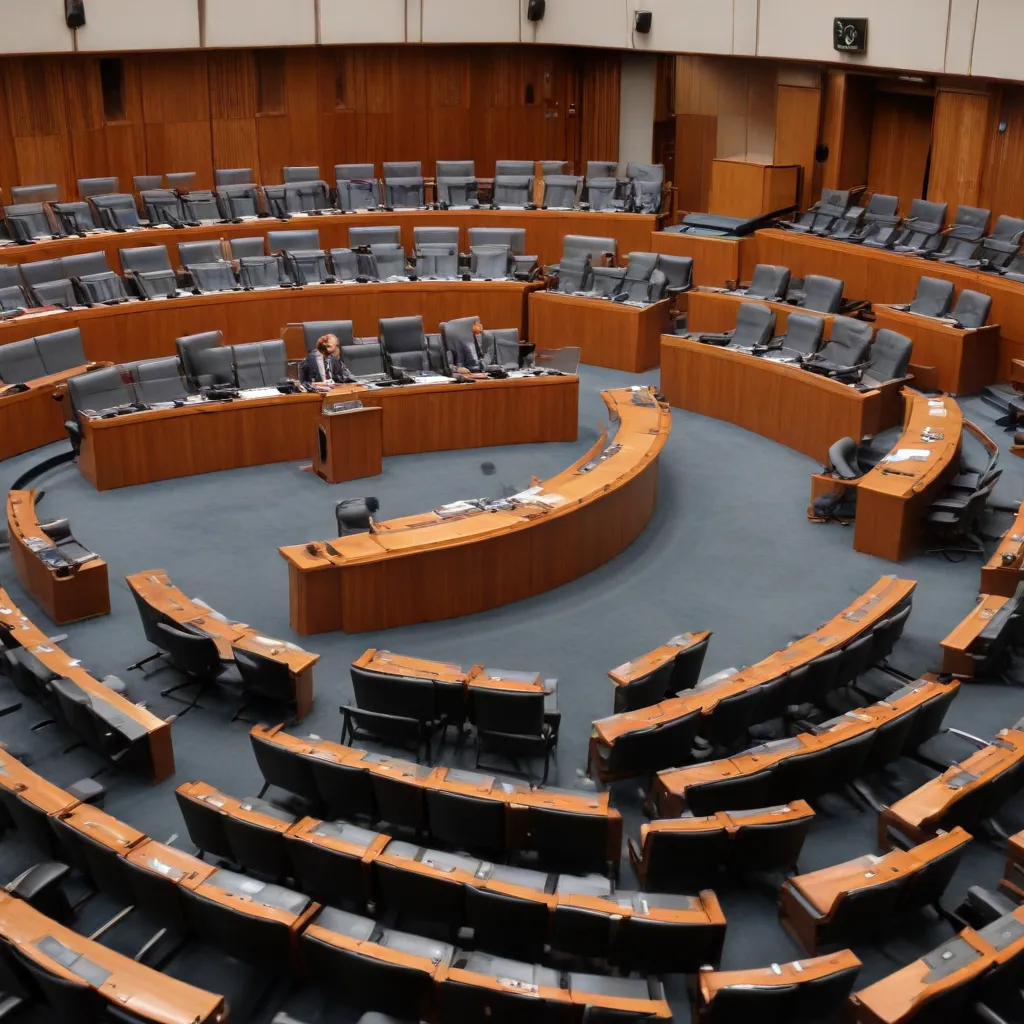
Senate’s Legislative Authority
The Australian Senate, as one of the two chambers of the nation’s federal parliament, plays a crucial role in overseeing the legislative process. This includes the ability to scrutinize and potentially disallow certain types of delegated legislation, known as “disallowable instruments.” These instruments are secondary laws made by the executive government, rather than being passed directly by the Parliament. The disallowance process allows the Senate to veto such instruments, serving as an important check on executive power.
Disallowable Instruments Overview: Delegated legislation, also referred to as subordinate or secondary legislation, encompasses a wide range of instruments such as regulations, rules, and determinations. These are laws made by a person or body other than the Parliament, under authority granted by an Act of Parliament. While delegated legislation has the same force of law as an Act of Parliament, the disallowance process provides a mechanism for the Senate to exercise control over this form of lawmaking.
Legislative Scrutiny Committees: The Senate Standing Committee for the Scrutiny of Delegated Legislation is tasked with examining all instruments of delegated legislation against a set of rigorous scrutiny principles. These principles focus on compliance with statutory requirements, the protection of individual rights and liberties, and the maintenance of effective parliamentary oversight. The committee’s regular reports and recommendations play a crucial role in guiding the Senate’s disallowance considerations.
Disallowable Instrument Types
Delegated Legislation
Delegated legislation encompasses a diverse range of instruments, including regulations, rules, determinations, and declarations. These secondary laws are made by the executive government, such as the Governor-General, ministers, or government agencies, under the authority granted to them by an Act of Parliament.
Regulation and Other Subordinate Laws
Regulations are a common form of delegated legislation, often used to provide detailed technical or administrative provisions to support the implementation of primary legislation. Other types of subordinate laws, such as rules, orders, and standards, may also be subject to the disallowance process.
Parliamentary Oversight
Disallowance Procedure
The disallowance process allows either the Senate or the House of Representatives to effectively veto a legislative instrument. Once an instrument has been tabled in either chamber, any member of the relevant House may give notice of a motion to disallow the instrument within 15 sitting days. If the motion is passed, the instrument is repealed, and it can no longer have legal effect.
Review by Senate Committees
The Senate Standing Committee for the Scrutiny of Delegated Legislation plays a critical role in the disallowance process. The committee examines each instrument against its scrutiny principles and may recommend that the Senate disallow the instrument if it identifies significant concerns. The committee’s reports and recommendations provide valuable guidance to the Senate in its consideration of disallowance motions.
Impacts on Legislation
Constraints on Executive Power
The disallowance power vested in the Senate serves as an important check on the executive government’s legislative authority. By enabling the Parliament to veto delegated legislation, the disallowance process helps to ensure that the executive branch does not overstep its bounds or enact laws without appropriate parliamentary oversight.
Ensuring Democratic Governance
The disallowance mechanism is a fundamental aspect of Australia’s system of representative democracy. It empowers the Parliament, as the elected legislative body, to maintain oversight and control over the laws that govern the nation, including those made by the executive government.
Parliamentary Procedures
Debates and Voting
When a notice of motion to disallow an instrument has been given, the Senate may debate the merits of the instrument and ultimately vote on the disallowance motion. The outcome of this vote determines whether the instrument will be repealed or allowed to remain in force.
Timing of Disallowance
The Senate has a limited window of 15 sitting days from the tabling of an instrument to give notice of a disallowance motion. This time frame is designed to ensure that the Parliament can act swiftly to address any concerns or issues with the delegated legislation.
Committee Scrutiny
Role of the Senate Standing Committee
The Senate Standing Committee for the Scrutiny of Delegated Legislation plays a crucial role in the disallowance process. The committee examines each instrument of delegated legislation against its established scrutiny principles, which cover a range of legal and constitutional considerations.
Reporting and Recommendations
The committee’s regular reports to the Senate provide detailed analysis and recommendations on instruments of concern. These reports serve as a valuable resource for senators, guiding their understanding of the issues and informing their decisions on whether to support disallowance motions.
Legislative Transparency
Public Accessibility
Instruments of delegated legislation are publicly available through the Federal Register of Legislation, ensuring transparency and accessibility for the public, parliamentarians, and other stakeholders. The tabling of these instruments in the Senate also contributes to the overall transparency of the legislative process.
Accountability Mechanisms
The disallowance process enhances the accountability of the executive government, as ministers and agencies must provide justification for the instruments they make. This includes the provision of explanatory statements, which outline the purpose and intended effect of the delegated legislation.
Federalism and Disallowance
Commonwealth-State Relations
The disallowance power applies to instruments made at the Commonwealth level, but it can also have implications for intergovernmental agreements and cross-jurisdictional instruments involving the states and territories. The Senate’s scrutiny of such instruments helps to ensure a harmonized approach to legislation across the federation.
International Obligations
Delegated legislation may also be used to implement Australia’s obligations under international treaties and agreements. The disallowance process provides a means for the Parliament to ensure that such implementing legislation aligns with the country’s international commitments.
The Senate’s ability to disallow instruments of delegated legislation is a fundamental aspect of Australia’s system of parliamentary democracy. By maintaining oversight over the executive government’s lawmaking powers, the disallowance process helps to uphold the principles of democratic governance, accountability, and the separation of powers. This legislative safeguard ensures that the laws governing the nation are subject to appropriate parliamentary scrutiny and control.
